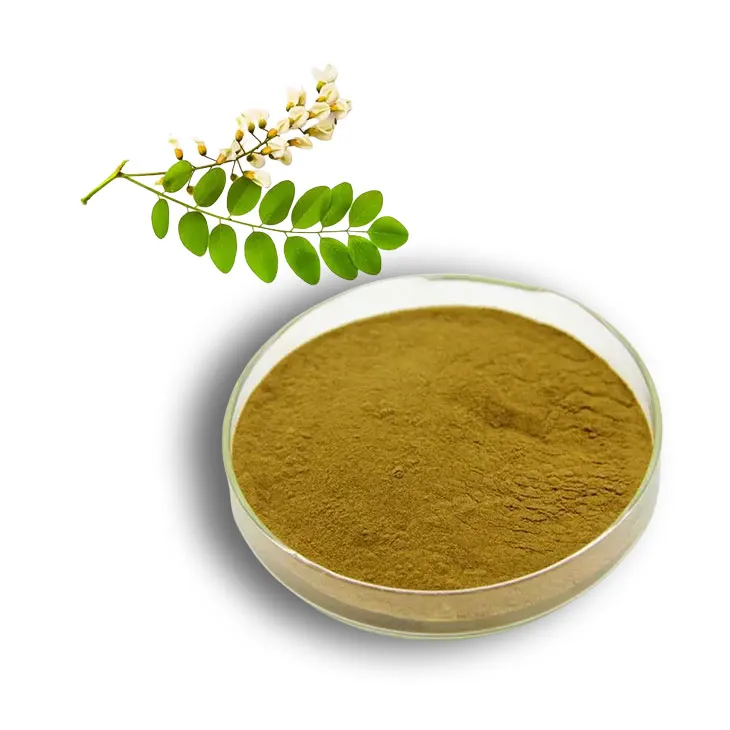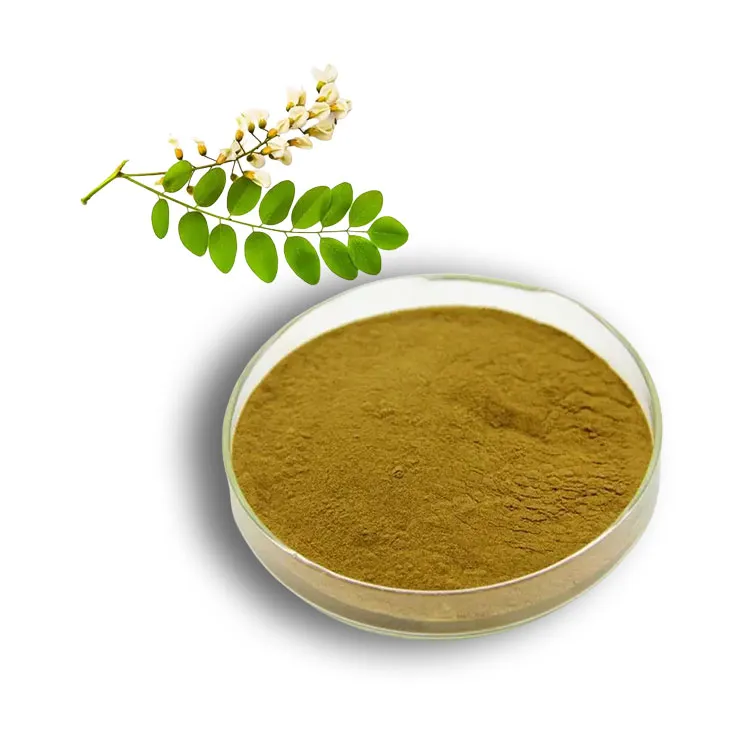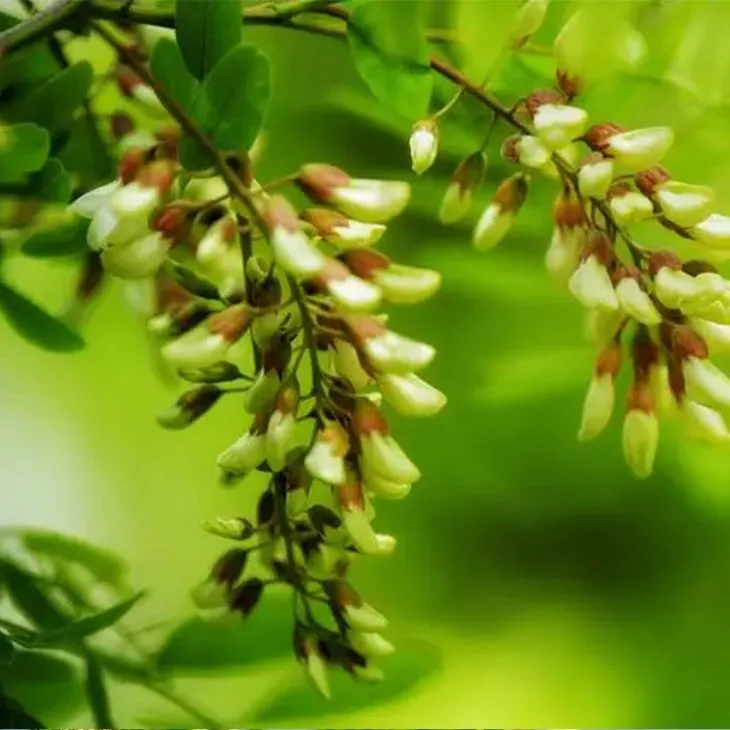- 0086-571-85302990
- sales@greenskybio.com
Expert Tips for Effective Wholesale Purchase of Sophora Japonica Flower Extract.
2024-12-10

1. Introduction
The wholesale purchase of Sophora Japonica Flower Extract is a complex process that requires careful consideration of multiple factors. This extract, known for its various potential health benefits and applications in different industries, has gained significant popularity in recent years. However, to ensure a successful and cost - effective wholesale procurement, it is essential to be well - informed about aspects such as purity, market trends, and packaging. In this article, we will explore these elements in detail with the help of expert tips.

2. Understanding the Product: Sophora Japonica Flower Extract
Sophora Japonica is a plant with a long history of use in traditional medicine. The flower extract contains a variety of bioactive compounds, including flavonoids, which are believed to have antioxidant, anti - inflammatory, and other beneficial properties.
2.1 Chemical Composition
The main components of Sophora Japonica Flower Extract are flavonoids such as rutin, Quercetin, and kaempferol. These compounds contribute to its medicinal and functional properties. For example, rutin is known for its ability to strengthen blood vessels, while Quercetin has antioxidant and anti - allergic effects.
2.2 Applications
- In the pharmaceutical industry, it can be used as an ingredient in medications for cardiovascular diseases, due to its potential to improve blood circulation and reduce inflammation. - In the cosmetic industry, it is added to skincare products for its antioxidant properties, which can help in reducing wrinkles and protecting the skin from environmental damage. - In the food and beverage industry, it can be used as a natural additive to enhance the nutritional value and antioxidant content of products.

3. Importance of Purity in Wholesale Purchase
Purity is a crucial factor when purchasing Sophora Japonica flower extract in wholesale. High - purity extract ensures better quality and more consistent performance in various applications.
3.1 Testing for Purity
- HPLC (High - Performance Liquid Chromatography): This is a commonly used method to determine the purity of the extract. It can accurately separate and quantify the different components in the extract, allowing for a detailed analysis of the flavonoid content and the presence of any impurities. - GC - MS (Gas Chromatography - Mass Spectrometry): For more comprehensive analysis, especially for detecting volatile compounds and contaminants, GC - MS can be employed. It provides information about the chemical composition at a molecular level.
3.2 Certifications and Standards
Look for products that comply with relevant international and national standards. For example, in the United States, products may need to meet the requirements of the FDA (Food and Drug Administration). In Europe, compliance with the EU's regulations on food and pharmaceutical ingredients is essential. Certifications such as GMP (Good Manufacturing Practice) also indicate that the product has been produced under strict quality control conditions.

4. Market Trends in Sophora Japonica Flower Extract
Keeping an eye on market trends is vital for making informed wholesale purchase decisions.
4.1 Growing Demand
- The increasing awareness of natural and plant - based products has led to a growing demand for Sophora Japonica flower extract in both developed and developing countries. Consumers are more inclined towards products with natural ingredients for health and wellness reasons. - In the pharmaceutical industry, the search for alternative and complementary therapies has also contributed to the rising demand for this extract.
4.2 Price Fluctuations
- The price of Sophora Japonica flower extract can be influenced by factors such as the availability of raw materials, production costs, and market competition. For example, if there is a shortage of Sophora Japonica plants due to environmental factors or over - harvesting, the price of the extract is likely to increase. - Seasonal variations can also affect the price. During the harvesting season, the supply may be relatively abundant, leading to a potential decrease in price.
4.3 New Product Developments
- Researchers are constantly exploring new applications and formulations of Sophora Japonica flower extract. New product developments, such as innovative skincare products or dietary supplements, can create new market opportunities. Keeping track of these developments can help wholesalers anticipate future demand and adjust their purchasing strategies accordingly.
5. Packaging Considerations
Packaging plays an important role in the wholesale purchase of Sophora Japonica flower extract.
5.1 Protecting the Product
- The extract is sensitive to factors such as light, heat, and moisture. Therefore, packaging materials should be selected to provide adequate protection. For example, amber - colored glass bottles can block out light and protect the extract from degradation due to light exposure. - Sealed packaging can prevent moisture and air from entering, which can affect the stability and quality of the extract.
5.2 Packaging Sizes
- Wholesalers need to consider the appropriate packaging sizes based on their business needs. Larger packaging sizes may be more cost - effective in terms of unit price, but they may also pose challenges in terms of storage and handling. - Smaller packaging sizes, on the other hand, may be more suitable for products with a shorter shelf - life or for customers who require smaller quantities.
5.3 Labeling
- Clear and accurate labeling is essential. The label should include information such as the product name, ingredients, purity level, batch number, expiration date, and storage instructions. This information helps ensure the proper handling and use of the product and also complies with regulatory requirements.
6. Supplier Selection
Choosing the right supplier is a critical step in the wholesale purchase of Sophora Japonica flower extract.
6.1 Reputation
- Research the supplier's reputation in the market. Look for reviews and testimonials from other customers. A supplier with a good reputation is more likely to provide high - quality products and reliable service. - Check if the supplier has been involved in any quality - related issues or legal disputes in the past.
6.2 Production Capacity
- Ensure that the supplier has the production capacity to meet your wholesale requirements. A supplier with limited production capacity may not be able to fulfill large - scale orders on time. - Consider the supplier's ability to scale up production in case of increased demand.
6.3 Quality Control
- Inquire about the supplier's quality control procedures. A reliable supplier should have strict quality control measures in place, from raw material sourcing to the final product packaging. - Ask for documentation of quality control tests, such as purity tests and microbiological tests.
7. Cost - effectiveness in Wholesale Purchase
Achieving cost - effectiveness is an important goal in wholesale procurement.
7.1 Bulk Pricing
- Compare the bulk pricing offered by different suppliers. Look for suppliers who can offer competitive prices for large - quantity purchases. However, do not sacrifice quality for a lower price. - Consider negotiating with suppliers for better prices, especially if you are a regular customer or if you are placing a large - scale order.
7.2 Hidden Costs
- Be aware of any hidden costs, such as shipping fees, customs duties, and handling charges. These costs can significantly impact the overall cost - effectiveness of the purchase. - Try to find suppliers who can offer inclusive pricing or who can help minimize these additional costs.
7.3 Long - term Cost Considerations
- Think about the long - term cost implications of your purchase. For example, a higher - quality product may initially cost more but may result in fewer quality - related issues and customer complaints in the long run, which can save costs associated with returns and replacements.
8. Conclusion
The wholesale purchase of Sophora Japonica flower extract is a multi - faceted process that requires a comprehensive understanding of various factors. By considering the product's purity, market trends, packaging, supplier selection, and cost - effectiveness, wholesalers can make informed decisions and ensure a successful procurement process. Staying updated with the latest information and industry developments is key to achieving long - term success in this area.
FAQ:
Question 1: How can I ensure the purity of Sophora Japonica Flower Extract when making a wholesale purchase?
When ensuring the purity of Sophora Japonica Flower Extract during wholesale purchase, you can ask the supplier for detailed certificates of analysis. These should include information on the chemical composition and the percentage of active ingredients. Look for suppliers who follow strict quality control standards, such as Good Manufacturing Practice (GMP). You can also request samples in advance and have them tested by a reliable third - party laboratory.
Question 2: What are the current market trends for Sophora Japonica Flower Extract in wholesale?
The current market trends for Sophora Japonica Flower Extract in wholesale may include an increasing demand due to its various health benefits being more widely recognized. There is also a trend towards more sustainable sourcing and production methods. Additionally, the market may see a shift in price depending on factors such as supply volume, new research findings that affect its perceived value, and competition among suppliers.
Question 3: How important is the packaging of Sophora Japonica Flower Extract in wholesale?
The packaging of Sophora Japonica Flower Extract is very important in wholesale. Proper packaging helps to protect the product from environmental factors such as light, moisture, and air, which can degrade the quality of the extract. It also ensures the integrity of the product during transportation and storage. Packaging should be clearly labeled with all necessary information, including product name, batch number, expiration date, and handling instructions.
Question 4: What are the key factors to consider when choosing a supplier for wholesale Sophora Japonica Flower Extract?
When choosing a supplier for wholesale Sophora Japonica Flower Extract, key factors to consider include the supplier's reputation in the market, their quality control procedures, the price and payment terms, the availability of different product grades and quantities, and their ability to meet delivery schedules. You should also check if they have any certifications related to product quality and safety.
Question 5: How can I stay updated on the price fluctuations of Sophora Japonica Flower Extract in the wholesale market?
To stay updated on the price fluctuations of Sophora Japonica Flower Extract in the wholesale market, you can subscribe to industry newsletters, follow relevant trade publications, and participate in industry forums or trade associations. You can also establish direct communication channels with multiple suppliers and ask them about any upcoming price changes based on market conditions.
Related literature
- The Comprehensive Guide to Sophora Japonica Extract: Properties and Applications"
- "Quality Control in the Production of Sophora Japonica Flower Extract: A Review"
- "Market Analysis of Botanical Extracts: Focus on Sophora Japonica"
- ▶ Hesperidin
- ▶ Citrus Bioflavonoids
- ▶ Plant Extract
- ▶ lycopene
- ▶ Diosmin
- ▶ Grape seed extract
- ▶ Sea buckthorn Juice Powder
- ▶ Fruit Juice Powder
- ▶ Hops Extract
- ▶ Artichoke Extract
- ▶ Mushroom extract
- ▶ Astaxanthin
- ▶ Green Tea Extract
- ▶ Curcumin
- ▶ Horse Chestnut Extract
- ▶ Other Product
- ▶ Boswellia Serrata Extract
- ▶ Resveratrol
- ▶ Marigold Extract
- ▶ Grape Leaf Extract
- ▶ New Product
- ▶ Aminolevulinic acid
- ▶ Cranberry Extract
- ▶ Red Yeast Rice
- ▶ Red Wine Extract
-
Tinospora cordifolia extract
2024-12-10
-
Apricot Powder
2024-12-10
-
Garcinia Cambogia Extract
2024-12-10
-
Alisma Extract
2024-12-10
-
Kidney Bean Extract
2024-12-10
-
Bilberry Extract
2024-12-10
-
Hops Extract
2024-12-10
-
Cranberry Extract
2024-12-10
-
Dandelion Root Extract
2024-12-10
-
Peppermint Extract Powder
2024-12-10





















